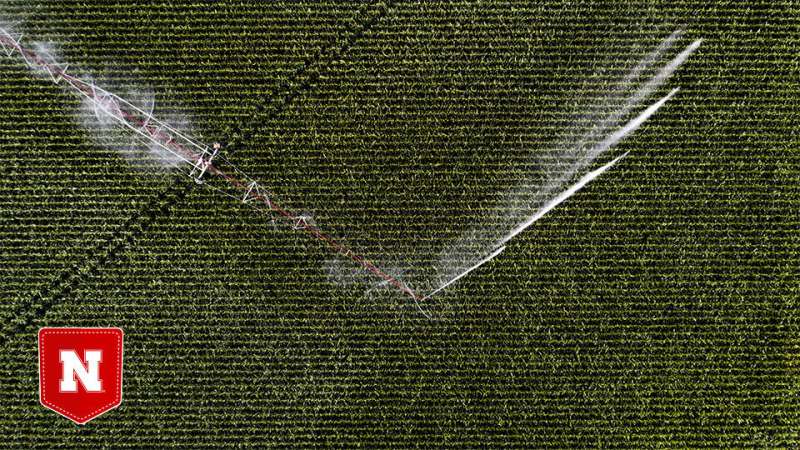Adding mineral to irrigation may lower toxic elements in soils

Arsenic, uranium and other trace elements naturally occur in topsoil across the U.S. Corn Belt, including the Cornhusker State. Crops grown in soils containing elevated levels of those trace elements can absorb them through roots, potentially curbing growth and threatening the health of those who regularly consume them.
Nebraska's Arindam Malakar, Chittaranjan Ray and colleagues were curious about whether ferrihydrite—a nanoscopic mineral sometimes found in soils but also used to treat groundwater and drinking water—might help address the issue.
As part of a greenhouse experiment using soil from the university's Panhandle Research and Extension Center, the Husker team planted corn in three soils: one with no ferrihydrite, another with 0.05 percent ferrihydrite, and a third with 0.10 percent of the mineral. After irrigating the soils with arsenic- and uranium-fortified water, the researchers tracked the growth of the corn plants and monitored concentrations of the trace elements in water surrounding the plant roots.
The team found that ferrihydrite-enriched soils lowered the concentrations of arsenic and uranium by about 20 percent. They also appeared to reduce the loss of nitrate, which is essential to plant growth but can cause health issues when leaching into groundwater, by roughly 30–50 percent. Water retention, meanwhile, rose from about 13 percent with no ferrihydrite to roughly 17 percent with it.
Crucially, the corn likewise seemed to benefit: Plants in the ferrihydrite-enriched soils grew taller, produced 12–15 percent more living tissue, synthesized more chlorophyll and yielded kernels containing nearly twice as much iron.
Conducting similar experiments in actual field conditions, rather than a greenhouse, will be necessary to validate the study's results, the researchers said.
But the initial findings suggest that adding even small doses of ferrihydrite to irrigation could limit concentrations of toxic elements while boosting crop growth and nutrient uptake.
More information: Arindam Malakar et al, Ferrihydrite enrichment in the rhizosphere of unsaturated soil improves nutrient retention while limiting arsenic and uranium plant uptake, Science of The Total Environment (2021). DOI: 10.1016/j.scitotenv.2021.150967
Journal information: Science of the Total Environment
Provided by University of Nebraska-Lincoln





















